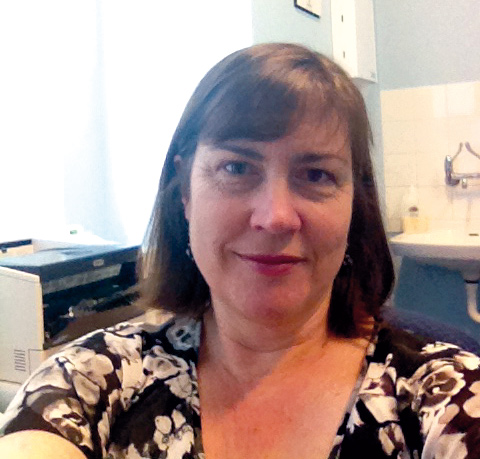
Advance Health Directives are hard gigs at the best of time. COVID is making them essential, says GP Dr Cathy Parsons.
The subject of Advance Health Directives (Advance Care Plans) is an area of mixed opinions among practising doctors. Many believe they are extremely valuable, whilst others see the limitations and even dangers when people confuse ‘not for resuscitation’ with ‘no active treatment’.
Regardless of each doctor’s personal bias, in the time of the Coronavirus pandemic an Advance Care Plan is something that will be expected for every COVID-19 patient, whether or not they are hospitalised.

There are lessons we can learn from what has been happening elsewhere in the world and in Australia. As GPs we can help develop a written plan before the situation becomes urgent. We can raise the topic of death in a sensitive way, that acknowledges its inevitability for ALL of us despite the best efforts of modern medicine.
The management team for COVID patients in (or from) Residential Aged Care Facilities (RACF) is likely to be made up of clinicians who do not know the patient or family, and who will be under pressure to make decisions quickly. The management team may not include the GP. The family will be expected to give clear directions on escalation of care.
Mixed quality
Most RACF residents these days have an Advance Care Plan on file. In my experience, the quality and legality of these documents is variable, and they were mostly compiled before the emergence of the pandemic.
We can be proactive in updating such documents and educating patients and their families. I find that meeting with the family at a case conference is an effective way of helping people understand the issues and practicalities, as well as allowing an opportunity for questions.
Before asking people to make decisions about treatment, it is important to explain what we know about treatment of COVID-19 in the aged population, such as the following:
- We do not have a cure.
- Despite treatment, a significant percentage of frail aged patients who get COVID-19 may die of it. Intensive treatment including artificial ventilation has so far not been very successful in treating the elderly. Most people over 80 years can expect NOT to be considered for mechanical ventilation because of its low success rate in this group.
- All patients with COVID-19 would be offered nursing care to improve their chance of recovery.
- Medical and nursing interventions can be offered to treat potentially curable complications, if recovery seems a possibility in that particular case: For example, intravenous fluids for dehydration or antibiotics for potentially curable secondary bacterial infection.
- There are some complications that we cannot cure, particularly in people whose condition was frail to begin with.
- If death appears inevitable or likely, there is a lot we can do to aim for a dignified and peaceful death, whether that is in hospital or in an aged care facility. However, it may be impossible for next of kin to be present.
- Not every COVID patient will be considered appropriate for hospital treatment either because they are not sick enough or because they are too ill to be expected to have a chance of recovery. The Health Department or the hospital admitting officer will decide the ceiling of care; families should not expect to be able to override that. For example, intensive treatment would be unlikely to be offered to people whose pre-existing health problems mean they are unlikely to recover.
- An important part of Health Department decision-making relates to prevention of spread to staff and to other residents. This may influence where a COVID patient can be accommodated, and the family may not be given a choice. Family visits would generally be forbidden.
- The patient’s own GP may not be able to be involved in COVID care.
We should, however, reassure patients and families that end-of-life care is something we understand and frequently practise in aged care, and that we will always aim for dignity and comfort when we cannot provide cure.
It is also helpful to explain to families what measures the RACF and the GP are taking to prepare for a COVID outbreak.
In other states we saw major issues with communication between RACFs and families. It is vital for both the doctor and the RACF to maintain an accurate database of contact information for each resident’s decision-making next of kin.
The time for upskilling in the use of technology for telehealth consultations is now: before the next wave. Residents can often be assisted in how to use technology, and GPs can make sure we have remote access to IT systems including medication management. PPE training and stockpiling should be well under way.
Here in WA we have found ourselves in one of the luckiest places in the world with respect to the pandemic. It is tempting to let our guard down, but I think we would be better off ensuring we are well prepared. Helping patients and families develop their own COVID plans is a useful thing we GPs can do.

